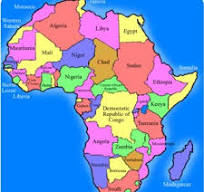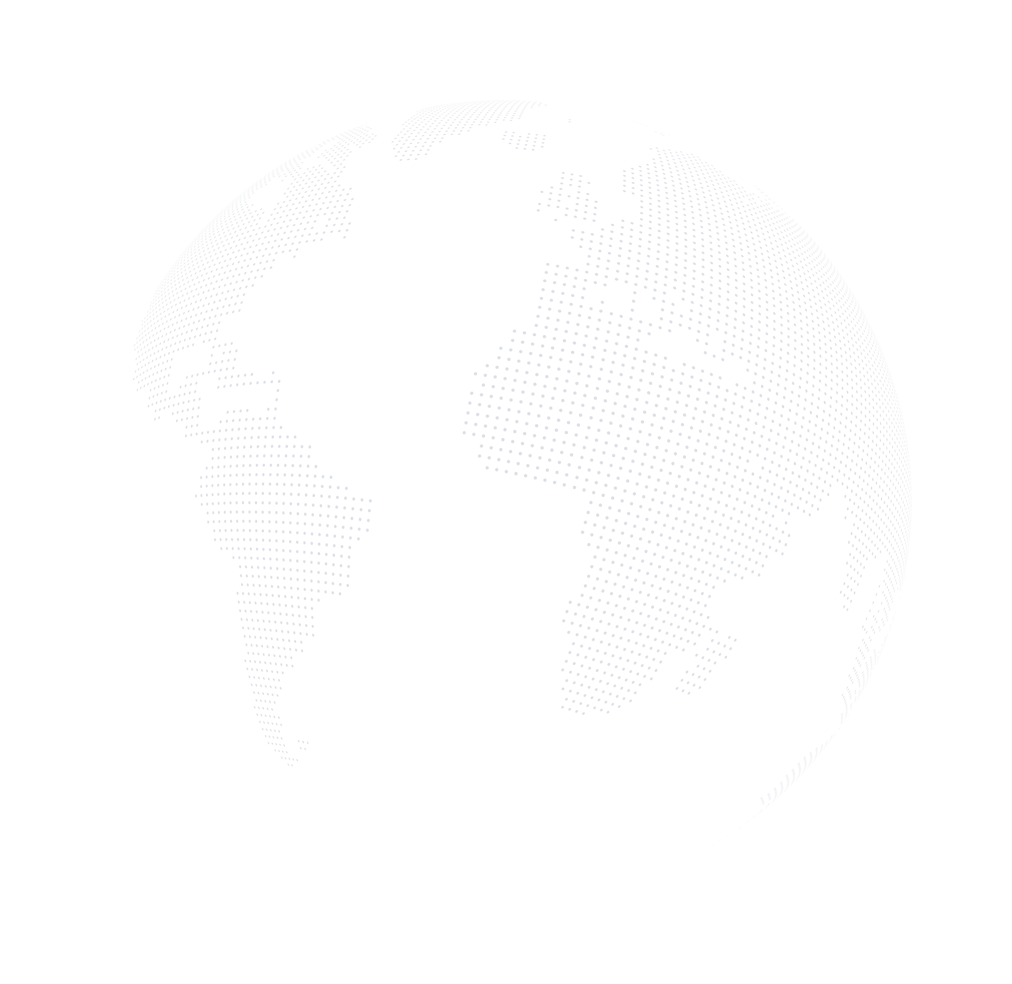Written By Idowu Ephraim Faleye- +2348132100608
‘There is a mystic flowing through the air’ is one of Bob Marley’s musical prophecies that echoed through the decades. Today, that mystic wind carries whispers of reckoning that could help reclaim Africa’s stolen future. Donald Trump is a man whose name alone splits the world into love and hate: To some, he’s a devil in a red tie, to others, he’s a modern-day prophet wielding divine justice. But in this moment, as the U.S. Treasury launches a historic global crackdown on illicit dollar fortunes, even his fiercest critics must ask: Is this the wrath of God, channelled through an imperfect vessel, to finally free Africa from the shackles of its thieves?
Let’s start with the hard truth. Over the past five decades, Africa has lost over $1.5 trillion in wealth siphoned by its leaders and stashed in foreign banks and underground vaults. To grasp what that means, $1.5 trillion could build 15 million hospitals, stock them with medicine, and still have enough left to put 300 million African children through school. Instead, that money was stolen, hidden, unseen, and sits idly-unuse in foreign banks and underground vaults, while 30 million Africans, desperate for jobs and dignity, flee their homelands to scrub toilets and serve as security guards in chilled cold weather in foreign lands or drown in the Mediterranean Sea in a desperate attempt to escape from Africa. This isn’t just corruption; it’s a generational curse. And now, Trump’s new “Global Corruption, Accountability & Dollar Sanitisation Act” has lit a fuse under this mountain of dishonest fortunes.
Here’s what will happen: Every dollar bill will soon carry a digital fingerprint. If your cash isn’t registered, if it’s tied to bribes, smuggling, or tax evasion, it will become worthless paper. Offshore banks have 90 days to report suspicious dollar holdings or face crippling sanctions. Task forces will raid luxury properties, freeze accounts, and chase pallets of cash hidden in mansions and bunkers. For the first time, the anonymous dollar—the lifeblood of kleptocrats—is being hunted to extinction. The U.S. Treasury’s warning is blunt: Declare it, or lose it. But this isn’t just about America cleaning up its currency. It’s about Africa’s stolen soul.
Take Nigeria, where a former dictator’s son was found to own a $500 million yacht and a private jet, bought with money meant for vaccines. Or Angola, where $3 billion in oil revenues—enough to electrify every village in the country—vanished into London real estate owned by a president’s cronies. In Kenya, corrupt officials have parked over $600 million in offshore accounts while public teachers go unpaid for months. These aren’t faceless numbers. They’re stolen school desks, stolen hospital beds, stolen futures. And for decades, the world turned a blind eye. But now, Trump’s policy has flipped the script. Suddenly, the same Western banks that happily accepted Africa’s blood money are scrambling to disown it, terrified of U.S. sanctions.

But here’s the twist: This crackdown isn’t just America playing the global cop. It’s a cosmic irony. The same dollars Africa’s elites hoarded to flex power abroad are now their poison. Imagine a Nigerian governor who stole billions to buy Miami condos. Under the new rules, if he can’t prove where the cash came from, those condos become ghost properties—worthless, unsellable. His vaults of hundred-dollar bills? Reduced to confetti. For ordinary Africans, this feels like divine justice. “God is using Trump to shame the devil,” a Ghanaian pastor told his congregation last week. “The money will come home, and the thieves will drown in their greed.”
Yet, there’s a gaping hole in this holy reckoning. The U.S. isn’t seizing these funds to return them to Africa. They’re invalidating the cash, destroying it, or absorbing it into American coffers. That’s where the real battle begins. African leaders—past and present—must choose: Do they let foreign nations confiscate wealth stolen from their people, or do they step forward, admit ownership, and demand its return? This is the moment for courage. For every dollar declared openly, Africa could reclaim a piece of its future. But it requires something rare in the halls of power: shame-faced honesty.
Read Also: When Giants Clash: USA and China Tariff War Could Collapse the Global Order
Consider Rwanda. After the genocide, the government aggressively pursued looted funds abroad, recovering over $300 million from European banks to rebuild roads and clinics. It wasn’t easy. It required swallowing pride, prosecuting thieves, and auditing every penny. But today, Rwanda’s economy is among Africa’s fastest-growing. Contrast that with South Sudan, where $4 billion vanished into foreign accounts while civil war raged. That money could’ve fed millions, but instead, it rots in a Swiss vault—soon to be erased by Trump’s policies if no one claims it.
This is the fork in the road. Over $400 billion in illicit African wealth sits in the crosshairs. If declared, that money could electrify slums, end malaria, and employ a continent. If ignored, it vanishes forever. The math is brutal: $400 billion equals 8 million clean water projects, 40,000 new schools, or 10,000 kilometres of paved roads. That’s the difference between a child in Lagos selling peanuts on the roadside and that same child becoming a physician curing cancer.
Read Also: Kidnapping in Nigeria: A National Emergency That Demands Immediate Action
Meanwhile, Trump’s “satanic” side lingers. His administration’s harsh immigration policies have deported African refugees fleeing the very poverty this stolen wealth caused. His disdain for climate action threatens to drown coastal nations like Senegal in rising seas. But even the devil, as the saying goes, can quote scripture. And in this case, the scripture is clear: Africa’s redemption lies in its own hands.
So, to the crooked presidents, the embezzling ministers, the shadowy tycoons—listen carefully. That mystic wind blowing through the air? It’s not just Marley’s ghost. It’s the collective cry of 1.4 billion Africans. Your stolen millions are not yours. They belong to the girl walking five miles to fetch dirty water, to the boy mining cobalt for your Mercedes, to the mother burying her baby because the clinic ran out of antibiotics. The world is done hiding your sins. Declare the money. Bring it home. Build the Africa you were meant to lead.
Read Also: There’s a Silent War in the forests of Yorubaland: Rise Before Our land Falls
And to the rest of us? We must demand it. Every day that passes without action, another village goes dark, another child is lost, and another grave is dug. This isn’t politics. It’s survival. It’s redemption. It’s the future screaming to be born.
The children are watching. They always are. In the slums of Nairobi, the refugee camps of Burkina Faso, the orphanages of Congo—they’re waiting for a sign that the world hasn’t forgotten them. Trump’s crackdown isn’t a miracle; it’s a mirror. It shows us who we are. Will we let this moment slip away, another broken promise in Africa’s long night? Or will we rise, fists clenched around the truth, and fight for what’s ours? That $400 billion isn’t just money. It’s the last flicker of hope for a continent that has bled too much, for too long. Bring it home. Build the schools. Light the streets. Feed the babies. The mystic wind is here. If you listen carefully now, you hear… It’s carrying the sound of a billion hearts beating, finally, in rhythm with justice. Don’t let it fade.
Idowu Faleye is the founder and publisher of EphraimHill DataBlog, a platform committed to Data Journalism and Policy Analysis. With Public Administration and Data Analytics background, his articles offer research-driven insights on Politics, Governance, and Public Service Delivery. He can be reached at ephraimhill01@gmail.com.











































![The Trend of Insecurity in Nigeria. [Part 2]](https://ephraimhilldc.com/wp-content/uploads/2024/09/Computer-Monitoring-of-Remote-areas.png)




































